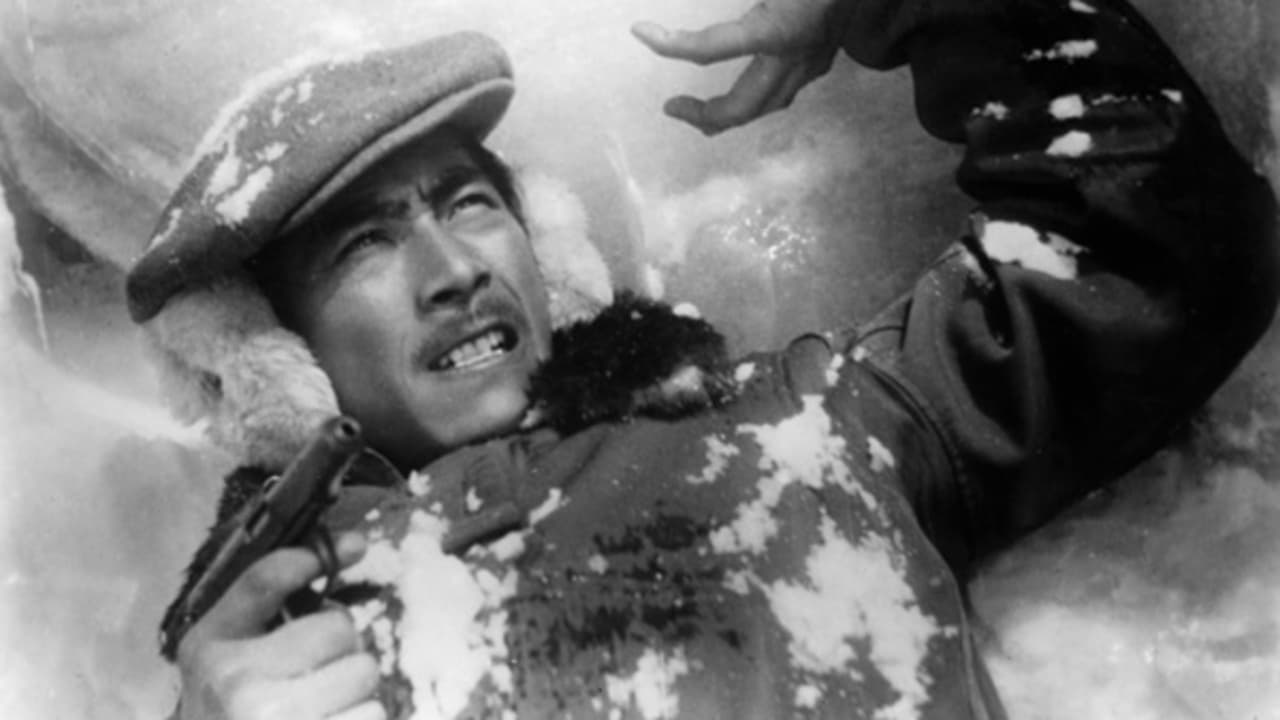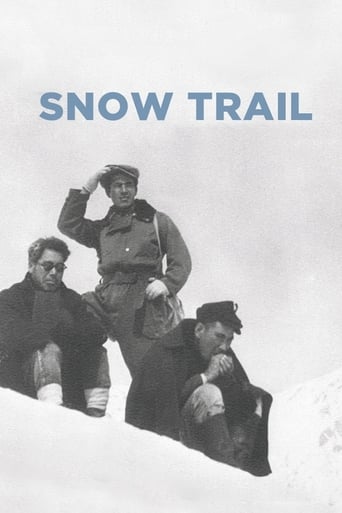



Very disappointed :(
All of these films share one commonality, that being a kind of emotional center that humanizes a cast of monsters.
View MoreBy the time the dramatic fireworks start popping off, each one feels earned.
View MoreAn old-fashioned movie made with new-fashioned finesse.
View MoreThree bank robbers are pursued across a dangerous snowy Japanese mountain range. They only have one hope and that is to rely on mountain-climbing expert Akitake Kono (Honda) who is stranded at the same mountain cabin as they are. The pursuing police are confident they will get the robbers. Mother nature has a few tricks up her sleeve.It's a different setting for a film and the outdoor locations give it a welcome authenticity. There can be melodramatic moments and these supply unintentional humorous moments on occasion. However, the message of the film is sound and the story allows you to sympathize with one of the robbers - Takashi Shimura (Nojiro) - the leader of the gang. It's also funny to see how far American records can travel.
View MoreFor quite some while now, I have been a fan of Akira Kurasawa and Toshiro Mifune and have been getting through any films that they were involved in in any way. Having a friend who comes from Japan coming over a couple of days ago, we watched Snow Trail together(as part of the Hulu Plus Criterion collection) as we are both big film enthusiasts. And I have to say that I was very impressed, and find it a shame that it has been so neglected. It may be too short and maybe it starts off a little too slow. However, from the point where the bank robbers followed the ski tracks to the little lodge, the story even if we have seen it before is exciting and briskly paced. It looks beautiful too, the avalanche scene is very well shot as well as being tense, while the scenery is gorgeous, effectively exuding a sense of isolation and beauty also. Akira Ifukube's score is also a big part of Snow Trail's success, it has such a haunting and melancholic tone that fits the mood of the film brilliantly. Written by Akira Kurasawa himself, the script is engaging, and Senkichi Taniguchi's direction showing a certain delicacy and humanity, a style almost similar to Kurasawa's in a way. Snow Trail nowadays is known as Toshiro Mifune's first starring role, while he would later give even better performances Mifune's performance here is appropriately taut and his character's temperament really helps to elevate the tension. Setsuko Wakayama's Haruko has much charm and innocence also. Overall, obscure and worthwhile, whether you see it as part of the Hulu Plus Criterion collection or elsewhere I do recommend it, and hopefully one day it will get the recognition it deserves. 8/10 Bethany Cox
View MoreThis peculiar romantic crime drama would probably be hailed as a classic if it were widely seen today, although it's not that tremendous; still, it's a deliberately unusual piece of work, and a generally neglected piece of Akira Kurosawa's filmography (as indeed are the majority of those pictures he wrote but did not direct, an alarming number of which have never even been shown outside Japan). It marks the formal debuts of Senkichi Taniguchi as director and Akira Ifukube as composer, but in the long run it's very much more a Kurosawa movie, shot through with his accustomed humanity, and full of surprises. Especially interesting is the way Takashi Shimura's criminal character develops, starting out proudly savage and then against all odds becoming a tender person, who ultimately cannot bear to kill the man who is loved by the woman HE'S in love with ... because he can't stand the idea of hurting her. Toshiro Mifune's character, by contrast, seems redeemable at the start but grows increasingly evil -- not at all what the filmmakers suggested at the start, and not at all expected. The film also boasts an astonishingly restrained performance by Yoshio Kosugi, who rarely met a piece of scenery he didn't like to gnaw upon, but who is remarkable here. Setsuko Wakayama and Kokuten Kodo are also superb; this is probably one of the only pictures that gave Wakayama a chance to shine, as for whatever reason she never became a major star in Japan.The snowbound location photography is excellent (much of the picture was drawn upon director Senkichi Taniguchi's own considerable experience as a mountain climber), and while Akira Ifukube's score is almost too energetic for its own good -- he clearly thought that his first time out he ought to be scoring every different scene with a separate leitmotif, and GODZILLA fans might be amazed to hear his first version of the famous "underwater ballet" music from that original 1954 film already in here (more conservative viewers who avoid monster movies might have also happened to hear the identical music in THE BURMESE HARP) -- Ifukube underlines the drama beautifully, and in the lengthy sequences that are without dialogue, he tells us most eloquently what the characters are feeling. When the elegy kicks in under Shimura's reappearance over the cliff, it's a heartbreaker. And yet there's hardly any music at all in the first hour, unusual for a film of any type at the time.It's not quite a masterpiece, but THE END OF THE SILVER MOUNTAINS is essential viewing for anyone who cares about Kurosawa, Mifune, Shimura, Ifukube, or indeed everyone who worked on this movie, and very clearly cared about it a lot.
View More